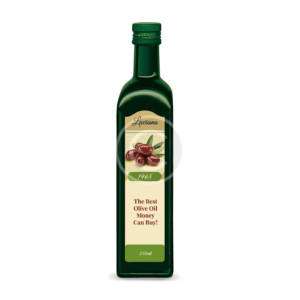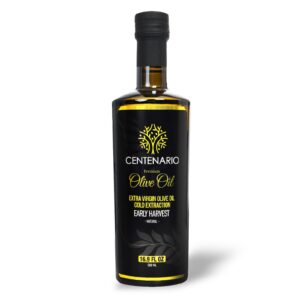When it comes to promoting overall health and well-being, olive oil has long been regarded as a staple ingredient. Its numerous health benefits, particularly its positive impact on digestion, have made it a popular choice among individuals seeking to optimize their digestive system. In this article, we will delve into the topic of olive oil and digestion, exploring its benefits, tips, and incorporating valuable insights to help you understand how this remarkable oil can enhance your digestive health.
Contents
Understanding the Digestive System
Before we explore the connection between olive oil and digestion, it is essential to have a basic understanding of the digestive system. The digestive system is responsible for breaking down the food we consume into nutrients that our body can absorb and utilize for energy, growth, and repair. It is a complex process involving various organs, including the mouth, esophagus, stomach, small intestine, large intestine, and liver.
The Role of Olive Oil in Digestion
Olive oil has gained recognition for its exceptional nutritional composition, rich in monounsaturated fats and antioxidants. These unique properties contribute to its positive impact on digestion. Let’s examine how olive oil can benefit your digestive system:
1. Promotes Smooth Digestion
Consuming olive oil can aid in smooth digestion by stimulating the production of bile in the liver. Bile is essential for the breakdown and absorption of fats in the small intestine. The monounsaturated fats present in olive oil help the gallbladder release bile, facilitating the digestion of dietary fats and improving overall nutrient absorption.
2. Supports Bowel Regularity
Maintaining regular bowel movements is crucial for a healthy digestive system. Olive oil acts as a natural lubricant, which can help soften stool and alleviate constipation. Incorporating olive oil into your diet can provide relief from common digestive discomforts associated with irregular bowel movements.
3. Protects the Gastric Mucosa
The gastric mucosa refers to the lining of the stomach, which plays a vital role in protecting the stomach from acid and digestive enzymes. Olive oil has been shown to possess anti-inflammatory properties, which can help reduce inflammation and protect the gastric mucosa from damage. This protection promotes optimal digestion and prevents gastrointestinal issues.
Tips for Incorporating Olive Oil into Your Diet
Now that we understand the benefits of olive oil for digestion, let’s explore some practical tips on how to incorporate this valuable ingredient into your daily diet:
1. Choose Extra Virgin Olive Oil
When purchasing olive oil, opt for extra virgin olive oil (EVOO). It is the least processed form of olive oil and retains the highest levels of beneficial compounds, including antioxidants and healthy fats. Look for reputable brands and ensure that the oil is cold-pressed, as this method helps preserve its nutritional value.
2. Use Olive Oil for Cooking
Olive oil’s versatility makes it suitable for various cooking methods. Whether you’re sautéing vegetables, grilling fish, or roasting chicken, consider replacing other cooking oils with olive oil. Its delicate flavor enhances the taste of your dishes while providing valuable health benefits.
3. Create Delicious Salad Dressings
A simple way to incorporate olive oil into your diet is by preparing homemade salad dressings. Combine extra virgin olive oil with vinegar or lemon juice, herbs, and spices to create flavorful dressings. Drizzling olive oil over fresh greens not only adds a delightful taste but also aids in the absorption of fat-soluble vitamins present in vegetables.
4. Dip with Crusty Bread
In Mediterranean cuisine, dipping crusty bread in olive oil is a common practice. Enjoy this healthy and appetizing combination by selecting whole-grain or artisan bread and dipping it into a small bowl of extra virgin olive oil. This adds a touch of indulgence to your meal while providing beneficial nutrients.
5. Replace Butter with Olive Oil
As a healthier alternative to butter, olive oil can be used as a spread on bread or as a topping for baked potatoes. Its creamy texture and rich flavor make it a satisfying substitution while promoting better digestion.
Conclusion
Incorporating olive oil into your diet can significantly contribute to a healthy and efficient digestive system. Its ability to promote smooth digestion, support bowel regularity, and protect the gastric mucosa makes it a valuable addition to your overall well-being. By choosing extra virgin olive oil and implementing simple tips for usage, you can unlock the incredible benefits this golden elixir has to offer. Embrace the wonders of olive oil and experience improved digestion for a happier and healthier you.




